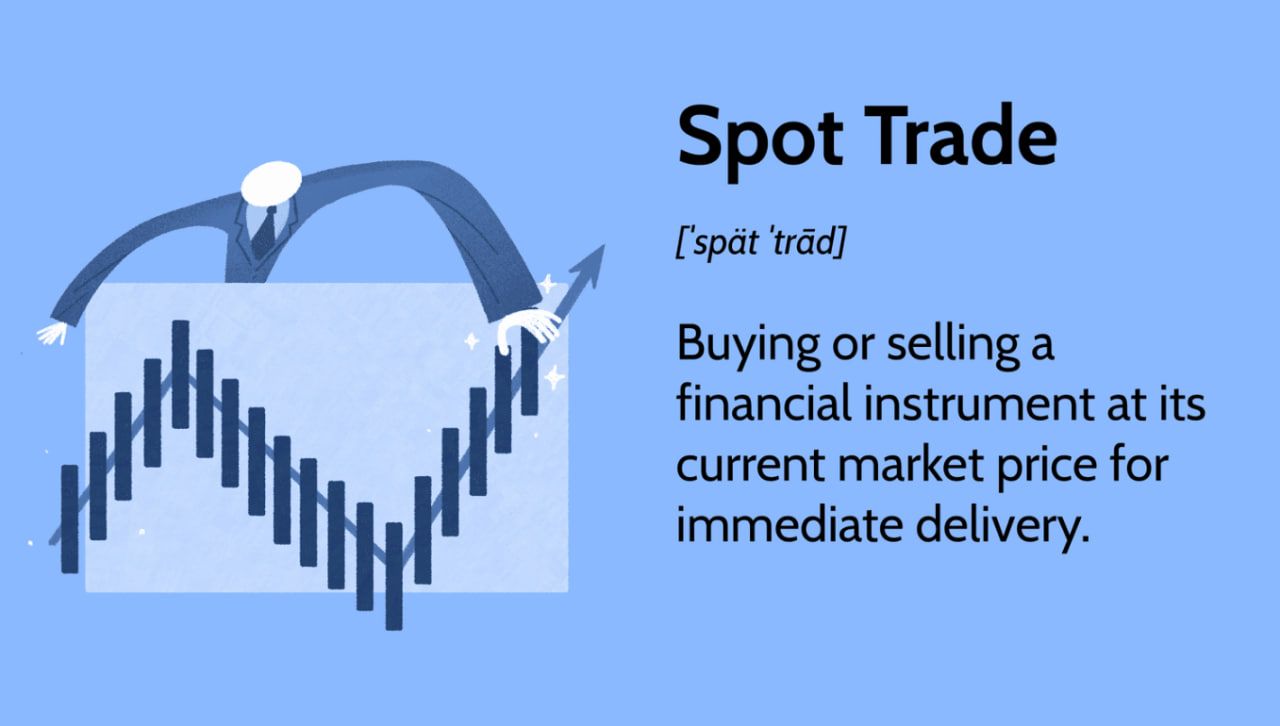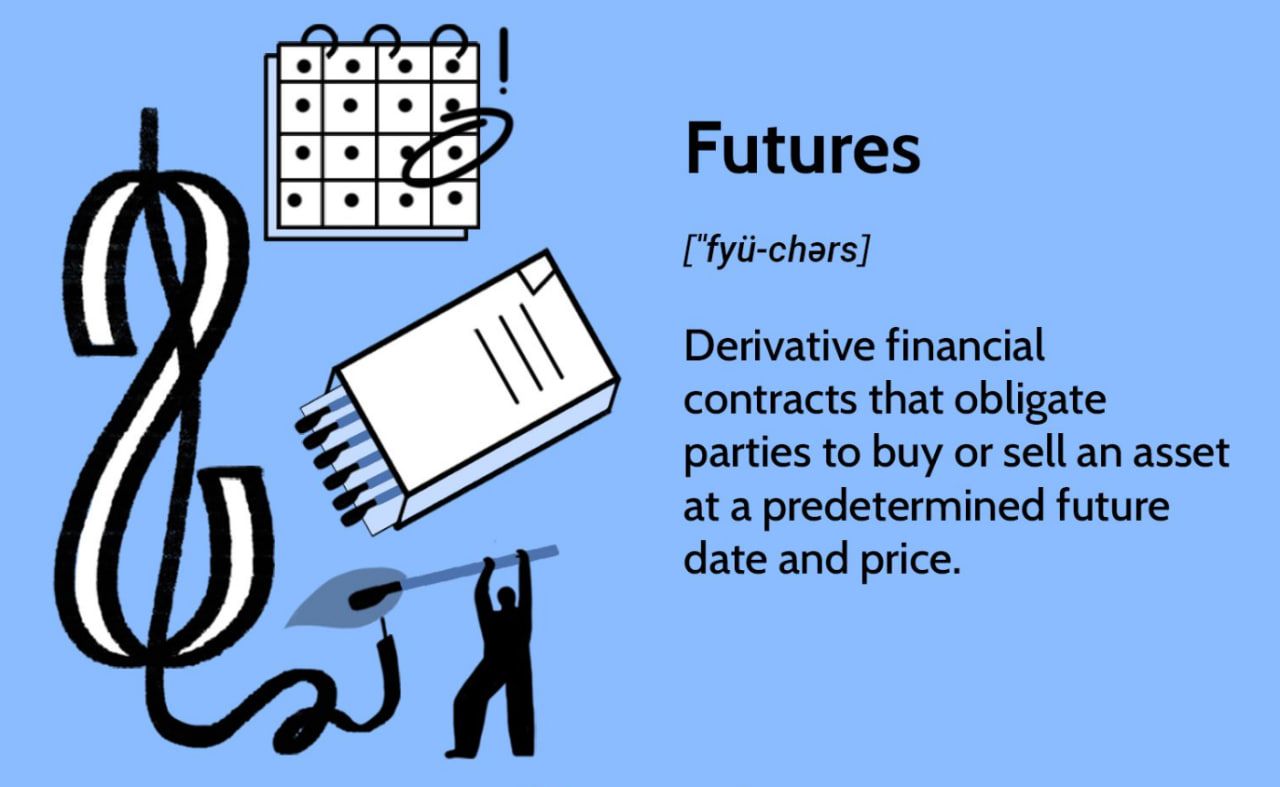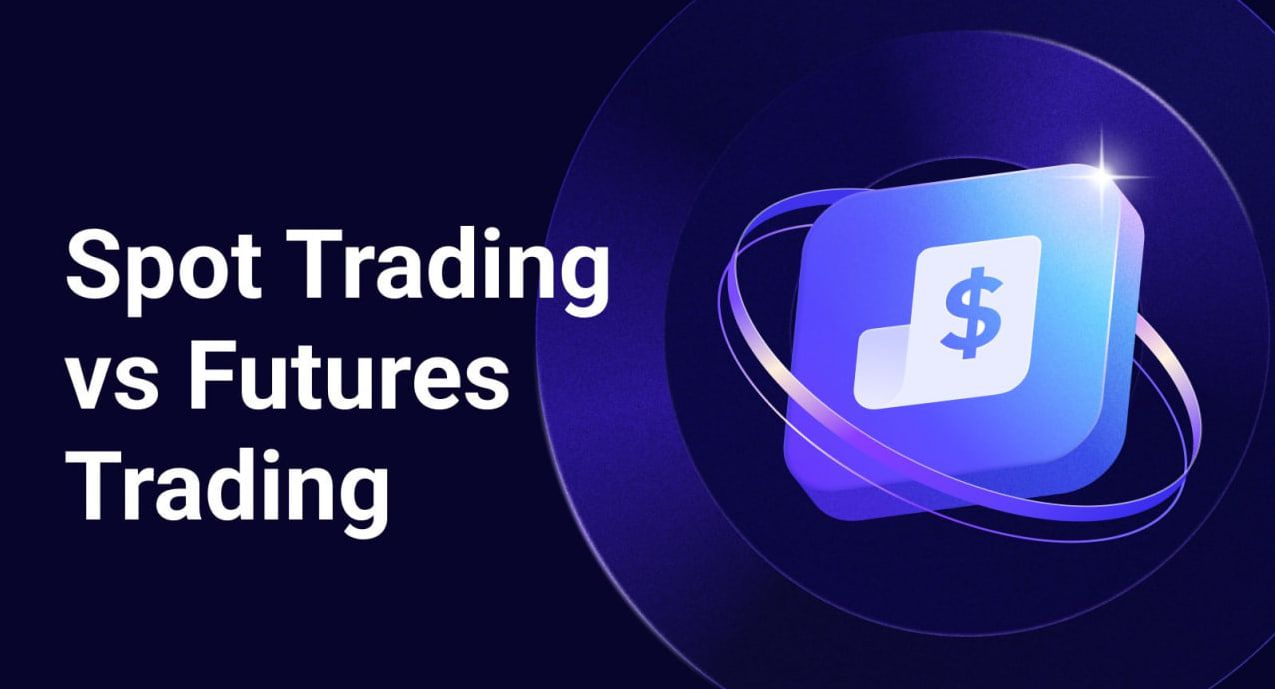Cryptocurrency trading has two main approaches: spot trading vs futures trading. Understanding the differences between these two methods is essential for choosing the right strategy and for your investment goals. Let’s join FMCPAY to dive into them and choose the trading strategy that fits you most!
1. What is Spot Trading?
Spot trading is the process of buying and selling cryptocurrencies at their current market price, with immediate settlement of the transaction. This simple process allows traders to gain direct ownership of the digital assets, which are then stored in a cryptocurrency wallet.

Spot trading is straightforward and transparent, making it an ideal choice for beginners. However, spot trading is subject to market volatility, which can lead to significant fluctuations in asset value. In the spot trading vs futures trading comparison, spot trading provides a more direct and tangible investment experience for those new to the market.
2. What is Futures Trading?
Futures trading involves buying and selling contracts that agree to exchange a specific quantity of a cryptocurrency at a predetermined price on a future date. Unlike spot trading, futures trading does not involve owning the underlying asset. Instead, it allows traders to speculate on price movements without taking physical possession of the cryptocurrency.
Crypto futures trading offers leverage, enabling traders to control larger positions with a smaller initial deposit. This leverage can amplify gains but also increases the risk of losses. Futures contracts are often used for hedging and managing risk in volatile markets.

When considering spot trading vs futures trading, futures trading offers more flexibility and complexity, catering to more experienced traders looking to take advantage of short-term market fluctuations.
3. Difference between spot trading vs futures trading
To choose the trading strategy that fits you most, understanding the key difference between spot trading and futures trading is crucial. Here’s an overview of important factors to consider when choosing between them:
|
Category |
Spot Trading |
Futures Trading |
|
Ownership |
This involves the actual purchase or sale of cryptocurrencies, where the trader owns the asset immediately after the transaction is completed. Spot trading is beneficial for those who want direct exposure to cryptocurrencies and plan to hold the assets as a part of their investment portfolio. | Involves agreements to buy or sell a cryptocurrency at a future date and a set price, without immediate delivery of the asset. This method is preferred by traders who want to speculate on price movements or hedge against other investments without managing the actual assets. |
|
Market Influence |
The spot market is influenced primarily by immediate supply and demand dynamics, making it more susceptible to sudden price changes due to market sentiments or news events. The risk is straightforward—prices moving against your position can result in immediate losses. | When considering spot trading vs futures trading, futures markets reflect expectations about future prices and can be influenced by long-term market trends. However, using leverage in futures trading can amplify both gains and losses, increasing risk and the potential for rapid financial impacts if not managed properly. |
|
Capital & Leverage |
Requires full capital upfront for purchases, limiting exposure but also limiting potential quick gains. This low-leverage approach makes it a safer option for those cautious about market volatility. | Often allows for significant leverage, meaning traders can control large positions with relatively little capital. While this can lead to large profits if the market moves favorably, it also increases the risk of substantial losses. In the debate of spot vs futures trading, this difference in leverage is a major consideration. |
|
Settlement |
Transactions are usually settled on the spot, with immediate transfer of ownership, which is beneficial during times of rapid price increases.
Understanding these strategies is key when deciding spot trading vs futures trading. |
Allows traders to lock in current prices for future transactions, offering a hedge against price volatility and allowing strategic positioning for expected market movements. |
|
Perfect for |
Perfect for those who believe in the long-term growth of cryptocurrencies and want to directly own and hold their digital assets. It’s simpler and generally considered less risky than futures trading. | Tailored for savvy traders looking to capitalize on market swings or protect against potential losses. It allows for complex strategies like short-selling, which is not possible in spot trading, making it a compelling option in the spot trading vs futures trading landscape. |
Read more:
4. Spot Trading vs Futures Trading: Which Fits You Most?
When choosing between spot trading vs futures trading crypto, it’s essential to consider key factors that can greatly influence your trading strategy and overall success. Here’s a quick guide to assist you make an informed choice:
4.1. Risk Tolerance
When deciding between trading spot vs futures, understanding your risk tolerance is most important. Spot trading is generally considered safer because it involves buying and holding the actual cryptocurrency. The value of your holdings may fluctuate, but you won’t lose your entire investment unless the asset goes to zero.
In contrast, futures trading can be much riskier due to the use of leverage, which amplifies both potential gains and losses. If you’re more risk-averse, spot trading may be the better choice, whereas futures trading might appeal to those with a higher risk tolerance looking for quicker profits.
4.2. Investment Goals
Your investment goals also play a significant role in determining whether spot trading vs futures trading suits you best. Spot trading is ideal for those with a long-term outlook who wish to build a portfolio of cryptocurrencies that they can hold and potentially benefit from as the market grows.
On the other hand, if your goal is to profit from short-term price movements, futures trading offers the tools to do so. Futures contracts allow for speculation on price changes without needing to own the underlying asset, making it suitable for traders focused on short-term gains.

4.3. Experience Level
The level of experience you have in trading is another factor to consider when choosing between spot trading vs futures trading. Spot trading is straightforward, making it more accessible to beginners. It doesn’t require extensive knowledge of complex trading strategies or market mechanisms.
Conversely, futures trading requires a deeper understanding of market trends, leverage, and risk management. It’s more suited for seasoned traders who have the experience to navigate the volatile nature of leveraged positions.
4.4. Market Volatility
Finally, your ability to manage market volatility should influence your decision in the spot trading vs futures trading debate. Spot trading allows you to weather market fluctuations by holding onto assets until the market rebounds.
In contrast, futures trading is often more volatile due to the use of leverage, which can quickly turn small market moves into significant gains or losses. If you’re comfortable with volatility and quick decision-making, futures trading might be the better fit; otherwise, spot trading provides a steadier approach.
5. Strategy for Futures Trading Investors
5.1. Leverage Management
When considering spot trading vs futures trading, one of the key strategies for futures trading investors is effective leverage management. Leverage can amplify your potential profits, but it also increases the risk of significant losses. To manage this, start with smaller leverage ratios to minimize risk, especially if you’re new to futures trading. Gradually increase your leverage as you become more comfortable with market movements and the mechanics of futures contracts.
5.2. Risk Mitigation
Another important aspect of futures trading is risk mitigation. Unlike spot trading, where losses are typically limited to the amount invested, futures trading can result in losses that exceed your initial margin. To mitigate this risk, use stop-loss orders to automatically close your position if the market moves against you. This strategy helps to protect your capital and ensures that you don’t suffer catastrophic losses, highlighting a crucial difference in risk management between spot trading vs futures trading.

5.3. Market Analysis
Finally, thorough market analysis is essential for futures trading. Futures contracts allow traders to speculate on price movements, which requires a deep understanding of market trends, technical indicators, and economic factors. Regularly analyze the market to identify potential entry and exit points, and stay informed about news events that could impact prices. This approach is particularly important when comparing spot trading vs futures trading, as futures markets can be more sensitive to short-term fluctuations.
In summary, successful futures trading requires careful leverage management, robust risk mitigation, and comprehensive market analysis. By focusing on these strategies, investors can navigate the complexities of spot trading vs futures trading and enhance their chances of achieving profitable outcomes in the futures market.
Conclusion
The choice between spot trading vs futures trading depends largely on your personal goals, experience, and risk appetite. Each approach offers unique advantages, so carefully consider these factors before deciding which one aligns best with your trading strategy.
And don’t forget to follow FMCPAY for more interesting crypto insights!

